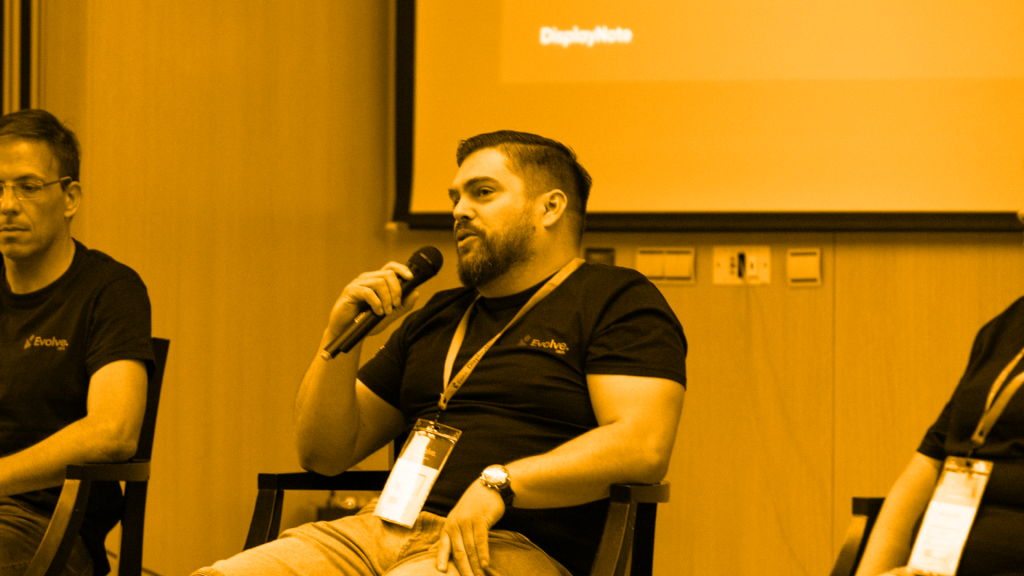
How to enhance collaboration in a small, distributed team.
Collaboration within small groups is something that, on the face of it, should be easy to do, the thinking being that in a group of 2 or 3, communication, to-dos and organisation is easy to manage. However, small group collaboration still needs a lot of thought when it comes to things like roles, goals and tools for the job.
To help us understand how collaboration works in small, distributed teams, we caught up with Matt Johnston, a web designer based in California but working on the designing of a website and discussion forum with 2 other team members, one based in Ireland and the other in Europe.
Hi Matt, tell us about the project – Who’s involved and what do they do?
The project here is the ongoing work on the website for The Hudson in Belfast, including the forum section which has been operating since about March 2012. I work primarily with the marketing guy for The Hudson, Michael Murray.
Are there identified roles?
I suppose I would be considered the ‘web guy’ although it is fairly ad-hoc, I think the forum has been mostly its own beast that has been allowed to exist separately from the mainHudson identity. We’ve this year been working on the main site also, and here Michael works with the rest of The Hudson folks to bring all the requirements to me and then I’ll feed back to him.
How important is communication between the team?
Essential really. If you don’t communicate, and you go all lone-wolf, you’ll probably end up spending twice the amount of time trying to get a project right. Maybe it goes without saying, but the bigger the geographic gap, the more communication becomes vital. And good communication too, video conferences where possible, and something democratic (let everyone have their say, even if you don’t use their advice).
How do you manage working across time zones and locations? Does it help or hinder workplace collaboration?
The Hudson is in Belfast and I’m currently located in California, but this isn’t too hard for what we’re working on to be honest. At this stage it’s mostly large features and general functionality being planned and discussed.
For the current version of the forum, there was a bit of bug testing that happened close to launch, but here we used the forum itself to report bugs (via private messages and new threads) along with Facebook messages when things got too broken.
I’m largely responsible for the ‘reliability’ of the site, but unfortunately most of the peak usage comes during daytime in the UK, so that can be a challenge, so I have to make sure to have automated systems in place to ensure site up-time and speed.
Is there a shared goal between team members (said or unsaid)
I think so, I think we just set out to create, and continue to want, a really simple, speedy, and unencumbered space for people to discuss stuff. We want to be pretty hands-off about being ‘moderators’ or whatever, so the software has evolved to try and support that. Obviously a positive side-effect of all this is a good promotional space for the Hudson themselves.
What tech do you use?
In the past we were really unstructured and just used Facebook messages to chat. With the version of the site we’re working on right now I’ve been trying out Asana (a web task management tool) to store all the requirements and allow for collaborative task working. The site is built on the Django framework (which runs on Python) and we use common stuff like jQuery to power some of the fancier bits.
Can you share any hints and tips on enhancing cohesion?
Yeah, I think “make sure stuff is written” down is a big one, which may seem obvious, but I have lost track of the number of times I’ve lost track of tasks because I said to myself “well, I’ll remember that easily enough”.
Also, and this is something I’ve just seen generally, is ensure that everyone is speaking the same language. Not literally, although I suppose… but like for big debates and conversations, try to remove all hint of ‘jargon’ from what you’re talking about, try and keep your arguments short and sweet.
I’ve been in too many meetings that get derailed because two people are arguing over something, unaware of the fact that they’re both arguing *for* the same thing because they haven’t stopped to clarify a piece of language or ensured they were making the right assumptions.
Sometimes it can help for the neutral parties in these cases to observe and get everyone on the same page.
Do you get the opportunity to give feedback and take stock of what’s happening?
I’m in the privileged position of being the sole builder of this thing, and basically doing it as a creative outlet, which is rare enough. It does mean I’m basically just an input for feedback though, as my own mind is the only person that will listen to *my* feedback! The feedback I do get, that’s what helps me to take the time to take stock.

You may also be interested in our blog post A Simple Framework for Enterprise Collaboration.
Want to stay in the loop?
Keep up-to-date with everything DisplayNote – including new releases, job openings, and customer giveaways.
Don’t worry, we’ll not spam you and we’ll never share your email with anyone






